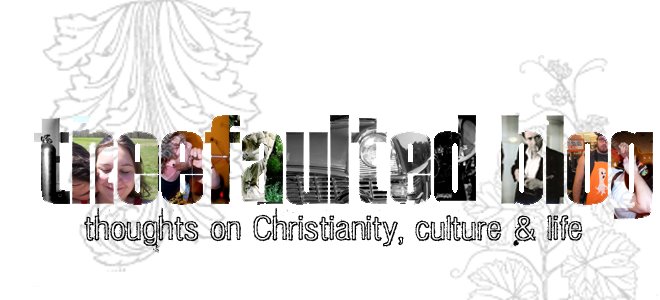So you have a sneaking suspicion that you can see better than your Armenian friends. You may be on to something, you should at least be able to see better than your nonreligious friends. For some reason I don't think this is what my Christian Leadership professor was talking about when He said "Cast the vision." The following is from newscientist.com courtesy of the Riddleblog.
It might be clichéd to say that religious people see the world differently, but new research finds that Dutch Calvinists notice embedded visual patterns quicker than their atheist compatriots.
Culture has long been known to distort visual perception, says Bernhard Hommel, a psychologist at Leiden University in the Netherlands who led the new study.
For example, one previous experiment found that Asians tend to dart their eyes around a photograph, while North Americans fix on specific people.
To see if religious differences might skew perception, Hommel's team tested 40 Dutch atheist and Calvinist university students, who, religion aside, had similar cultural backgrounds.
Looking inwards
On a computer screen, Hommel's team showed participants a large triangle or square made of either smaller triangles or squares. The volunteers had to focus on either the big object or its component shapes, and indicate whether they were square or triangular.
Both groups recognised the large shapes more quickly than small, embedded ones, but the Calvinists picked out the smaller shapes 30 milliseconds faster than atheists, on average - a small, but significant, difference.
This could reflect a greater focus on self than external distractions for Calvinists, says Hommel.
He suggests it may even be a cognitive consequence of their religion and speculates that Calvinists might be more inward looking than atheists because they have lived their whole lives with an emphasis on minding their own business.
In the future, Hommel plans to give the same test to Catholics, as well as Muslims and Jews, but he must first figure out how to eliminate other cultural differences that could mask any insights. "It doesn't make any sense to compare Iranian Muslims with Dutch atheists," he says.
"This is a thought-provoking study," says Ara Norenzayan, a psychologist at the University of British Columbia. "Their finding is consistent with the literature on cross-cultural cognition - that cultural traditions involving independent view of the self, such as Calvinism, encourage a more feature-based processing style."

No comments:
Post a Comment